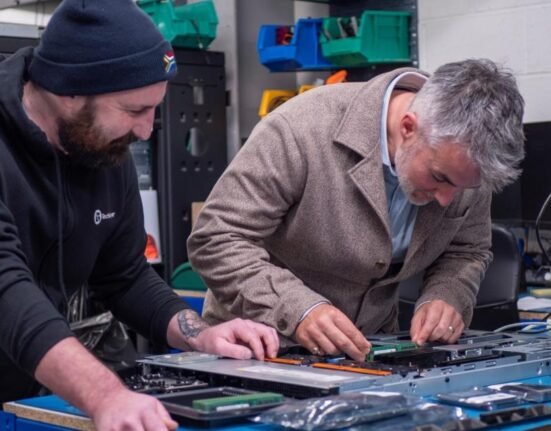As Cardinal News recently reported, CNBC ranks Virginia as the top state for business and 15th for technology in the United States. As a hub of tech innovation, Virginia is developing the next generation of tech professionals to compete on the global stage. During this exciting time, it is crucial to address the ongoing gender disparity in STEM and close the gender gap to strengthen our state’s tech sector.
Virginia has over 330,000 tech employees, making it one of the largest tech talent pools in the United States. Yet, only 33% of tech workers in Virginia are women. As the world becomes more and more dependent on emerging technologies and the demand for qualified tech workers grows, it is critical to have a commitment to diversifying the tech industry in order to have a more successful tech sector that reflects our diverse state.
A McKinsey report titled “Diversity Wins” found that the benefits of a diverse workforce include improved performance, retention, and engagement. However, women have been historically underrepresented in STEM fields, comprising only 35% of the national workforce. This lack of representation impacts women who entered tech roles, with over half leaving by the age of 35, many attributing their departures to a lack of inclusivity in the industry.
After years of working in tech startups and witnessing the gender gap firsthand, I founded Boolean Girl, a Virginia-based nonprofit dedicated to empowering girls to pursue STEM careers from a young age. To win the global tech race, we need a competitive talent pool filled with diverse opinions, skills and experiences. By teaching young women coding and programming skills, we are investing in gender equality and a robust, diverse STEM workforce.
Virginia is full of opportunities in the tech sector, especially in cybersecurity. Our state boasts the second largest cybersecurity workforce in the country. Innovative opportunities across the state range from AI training and implementation, safeguarding software, and even helping defend our nation from hackers around the globe. As cyber threats become increasingly more sophisticated, younger generations are facing a reality that demands increased STEM literacy and increased skills in STEM fields. Boolean Girl bridges the gap by helping young women access local opportunities and providing them with the tools and training they need.
U.S. national security leaders have expressed concern about China’s ability to disrupt systems like water access, oil and gas pipelines, rail systems and more. In April, FBI Director Christopher Wray warned that Chinese hackers are targeting U.S. infrastructure, strategically waiting to strike when it will hurt us the most. Our adversaries are not slowing their attacks, making it crucial to assess the longevity of our current talent pool and identify the next generation of tech leaders.
The reintroduction of restrictive tech legislation like the American Innovation and Choice Online Act, a bill that affects small business’ ability to market their goods on digital platforms, will undermine efforts to make the tech sector more equitable. Policymakers must encourage tech innovation to support the operations and expansion of our tech workforce, rather than pursuing policies that stifle growth and slash opportunities. By continuing to support our domestic tech sector through encouraging competition and innovation, policymakers are making an investment in our cybersecurity workforce and safeguarding U.S. infrastructure and data from foreign adversaries like China.
A predominately male tech workforce deprives us of the diverse perspectives and experiences crucial for the discussions shaping our state and nation’s future. Policymakers and tech executives have the responsibility to close the gender gap in the tech industry. China has stated its goal to become the global tech leader by 2030. Given China’s commitment to technological superiority and their potential to surpass us in the global tech race, now is the time to embrace innovative thinking and build a competitive, empowered workforce that can only be achieved through greater diversity.
By continuing to uplift businesses that mentor our next generation of tech leaders, we will continue to reinforce our state’s position as a driver of technological innovation and maintain the United States’ competitive edge.
Brian Moran is a husband, father of two, and the cofounder of Boolean Girl, a nonprofit with a mission to improve gender diversity in technology and engineering. Note: He is not the same Brian Moran who once served in the General Assembly and is a former state cabinet secretary.






